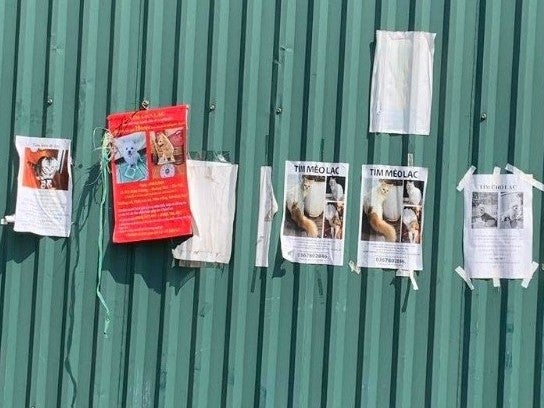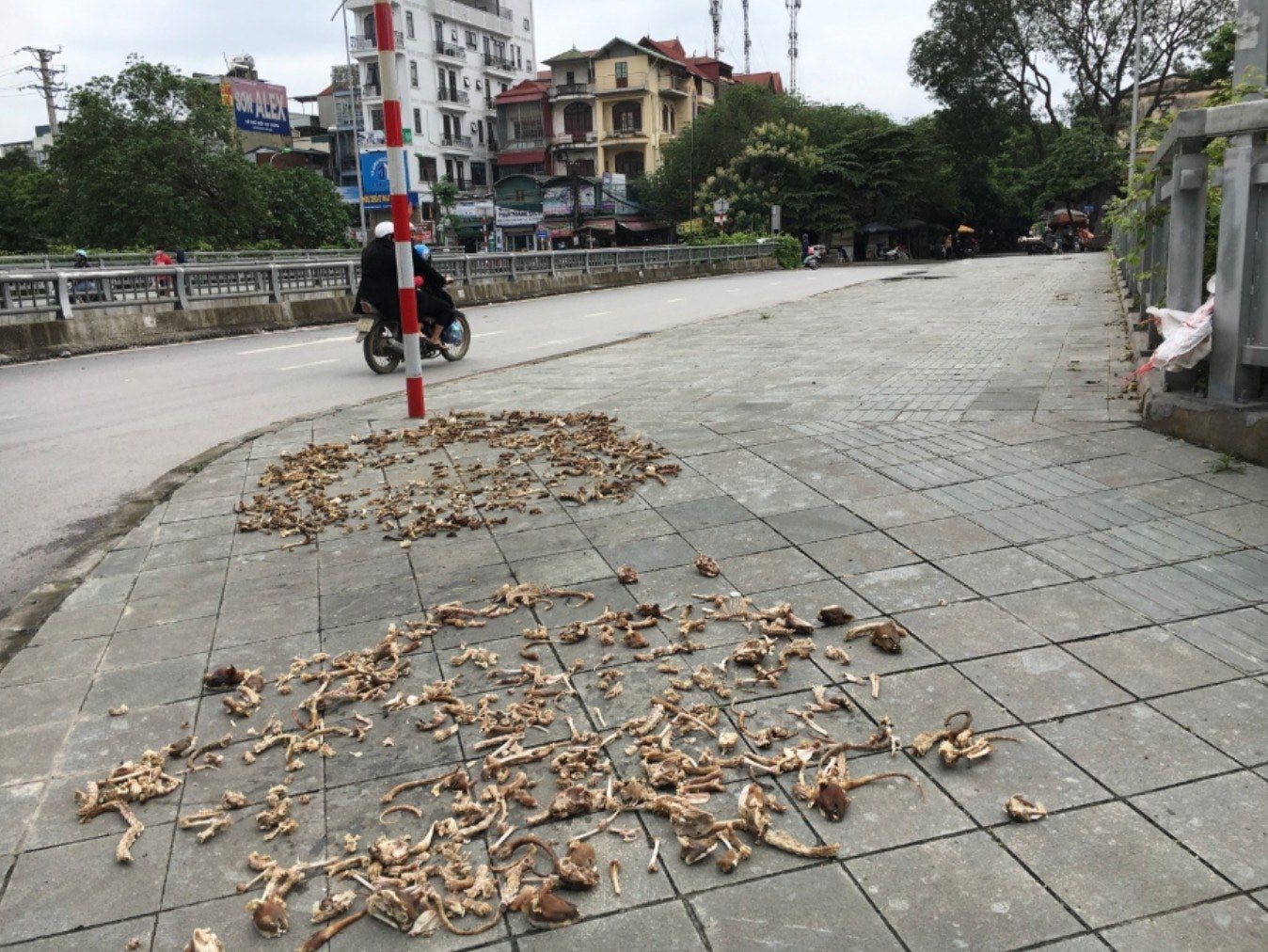Cat meat traders in Vietnam ‘stealing beloved family pets’ as business thrives during coronavirus
Piles of bones laid out on pavements as desperate owners appeal for information on animals

Your support helps us to tell the story
From reproductive rights to climate change to Big Tech, The Independent is on the ground when the story is developing. Whether it's investigating the financials of Elon Musk's pro-Trump PAC or producing our latest documentary, 'The A Word', which shines a light on the American women fighting for reproductive rights, we know how important it is to parse out the facts from the messaging.
At such a critical moment in US history, we need reporters on the ground. Your donation allows us to keep sending journalists to speak to both sides of the story.
The Independent is trusted by Americans across the entire political spectrum. And unlike many other quality news outlets, we choose not to lock Americans out of our reporting and analysis with paywalls. We believe quality journalism should be available to everyone, paid for by those who can afford it.
Your support makes all the difference.Traders illegally dealing in cat meat in Vietnam are being accused of stealing beloved family pets — and business is booming for them because of the coronavirus pandemic, investigators claim.
Piles of cat bones were discovered laid out on pavements in the capital Hanoi this week, from an estimated 100 animals.
Researchers said posters appealing for information about missing pets were pinned outside the markets, hung by devastated owners searching for their stolen pets.
“Desperate to find their missing pets, many owners will visit live animal markets in the hope of finding their lost dog or cat to try to buy them back before they are brutally killed for meat,” according to the animal welfare organisation Four Paws, which carried out the investigation.
Cats still with collars on were also seen at restaurants.
One street vendor reportedly said: “We have had no difficulty sourcing animals because of the pandemic. Pets are still being stolen regularly and sometimes sold by families who do not want them any more.”
The investigators said that the pandemic appeared to have increased the “particularly brutal” trade, because restaurants that were closed to diners were doing more home deliveries than ever.
Four Paws also discovered four in five vendors at popular markets were still selling dog and cat meat. The venues, mostly “wet” markets, had two to three outlets each selling the meats, the research found.
One seller said they had sold 40kg of cat meat the day before speaking to the researcher, who was Vietnamese.
Vendors also appeared less concerned about keeping their businesses behind closed doors.
Unlike Vietnam’s dog meat trade, which is neither illegal nor regulated, legislation bans the hunting, slaughter and consumption of cats, following an order by the prime minister in 1998 to keep rat numbers down, so sellers are more secretive than they are about dog meat.
But authorities do little to enforce the legislation, the organisation says.

After the flesh is removed, the bones are used to make balm, believed by some to help joint pain and infertility.
Last month, The Independent revealed how sales of dog and cat meat had risen in Vietnam and Cambodia during the pandemic because people believe it can ward off flu.
This week, investigators who returned reported seeing signs posted by vendors stating “Due to Covid-19, we sell dog meat to go”.
Katherine Polak, Four Paws’ head of stray animal care in southeast Asia, said: “The cat meat trade is incredibly cruel and affects over a million cats each year in Vietnam.
“Given that cat meat, which goes by the name ‘little tiger’ often fetches a higher price and is seen as a more ‘exotic’ dish by some, it isn’t surprising that in the pandemic stay-at-home orders have given rise to an increase in cat meat eating.
“What is surprising, however, is the brazen approach to drying bones of stolen pets in the middle of a public sidewalk during a pandemic.”
She said restaurants reported that not only was business doing well, but many customers were police.
Four Paws says that its previous research has shown that in Cambodia, at least 3 million dogs are involved in the meat trade every year, in Indonesia over 1 million, and in Vietnam, over 5 million.
“All aspects of the trade from catching, transporting to slaughtering involves unacceptable levels of cruelty and suffering, making it one of the most pressing companion animal concerns of our times,” the group says.
Two Chinese cities have banned consumption of dog and cat meat, and China’s government has re-classed both as pets, not livestock.
The Independent is campaigning for better regulation of animal markets and trade worldwide.
Join our commenting forum
Join thought-provoking conversations, follow other Independent readers and see their replies
Comments